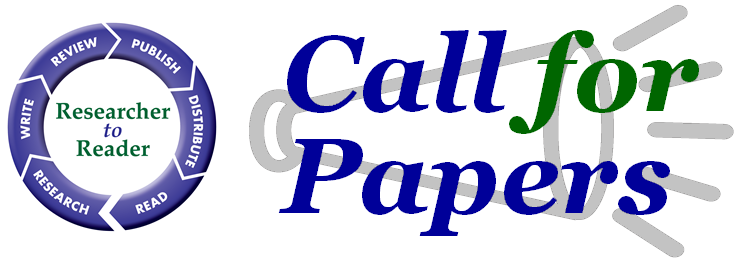
The Researcher to Reader Conference takes place each February, and our Programme is developed between June and October the previous year, with a Call for Proposals normally opening during July and closing in late August or early September. The Programme comprises a combination of invited contributors and a selection from the proposals received. We also welcome informal suggestions for topics and speakers at any time.
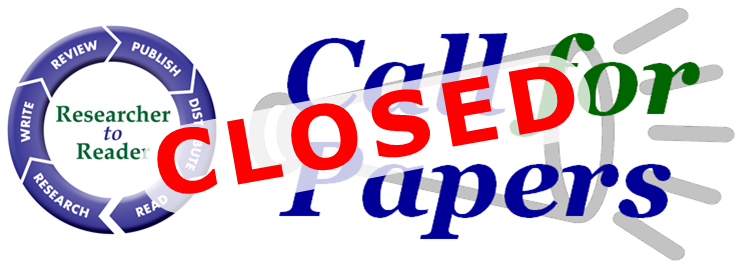 The Advisory Board invites proposals for workshops, panels, interviews, presentations, debates and lightning talks on the subject of international scholarly communications.
The Advisory Board invites proposals for workshops, panels, interviews, presentations, debates and lightning talks on the subject of international scholarly communications.
We particularly encourage proposals from researchers, editors, funders and librarians, and from people based outside the UK. We are also strong supporters of diversity and inclusion, and actively welcome proposals from under-represented demographics.
The 2024 Call for Proposals will be open during July and August 2023. Proposals sent in during July and the first half of August will benefit from early review and may be eligible for feedback that could increase the chances of acceptance.
Proposers must use our online proposal management system (powered by Ex Ordo).
Key information
The key information for making proposals is set out below:
- Use the proposal system to complete a proposal by the deadline.
- Propose a topic likely to appeal to the majority of our participants.
- Choose a session format (Panel, Workshop, etc) that is appropriate for your topic.
- Make your own proposal; those made via marketeers (except for Lightning Talks) will be rejected.
- Sales messages are not permitted (however well-disguised), except in Lightning Talks.
- Plan to participate in the whole Conference, not just briefly ‘flying in’ to address an audience.
- Contributors (except for Lightning Talk speakers) are offered discounted registration.
- Join us physically at the venue if possible, but you can be online if necessary.
- Proposals are evaluated by the R2R Advisory Board, and their decision is final.
To make a proposal for participation in the Conference, please first read the detailed guidance below and explore the R2R website for more information, then click the link above to start your proposal.
Call For Proposals
Conference Background
The Researcher to Reader Conference is a key forum for discussion of international scholarly communications – exploring how academic knowledge is conveyed from the researcher to the reader. The Conference takes place annually each February and involves around 150-250 participants from all parts of the scholarly communications community, including funders, researchers, research managers, editors, publishers, distributors, technologists and librarians. Initially a physical meeting based in London, the Conference was online-only in 2021 and has been hybrid in 2022 and 2023. In 2024 we will be mainly a physical event, but we hope to have opportunities for both contributors and participants to join online. The Conference has always been designed as a collaborative meeting, and conversation, amongst all the participants (including speakers), and has been successful in maintaining this ethos throughout the online and hybrid experiments.
Call for Papers Summary Information
The R2R Conference has an outstanding reputation for a well-prepared and highly-engaging programme. This is achieved, in part, by having a very structured approach to the Call for Papers, encouraging people to make proposals which are well-suited to R2R, are well-developed, easy to evaluate, and stand a high chance of inclusion in the programme. This, we believe, is helpful to both those making proposals and those evaluating them.
Below is a summary of how you can make a proposal.
- Please use the proposal entry system and complete your proposal by (or before) the deadline (see top of page).
- You should propose a topic likely to appeal to our participants who are drawn from across the scholarly communications landscape.
- You should choose a session format to suit your topic: a talk (Presentation), an expert discussion (Panel), a one-to-one conversion (Interview), a structured argument (Debate), a collaborative exploration (Workshop), or a quick message (Lightning Talk).
- A contributor must make their own proposal; while we welcome contributions from all individuals in the scholarly communications landscape, corporate proposals made via marketing departments, assistants, or other proxies on behalf of contributors cannot be considered, except for Lightning Talks.
- Sales messages are not permitted (however well-disguised), whether they are about commercial or not-for-profit offerings, except in the Lightning Talks.
- We strongly encourage each contributor to the programme to think of themselves as a participant in the whole Conference, not someone who is briefly dropping in to address an audience.
- Each contributor to the programme is offered discounted registration, except for Lightning Talk speakers; further discounts and concessions are also available.
- As the Conference is designed to be a fully-inclusive hybrid event, a contributor to the programme can participate physically at the venue or online, in their session and in the whole event, although we encourage contributors to come to the venue if possible, to help to balance the platform.
- Proposals are evaluated by the R2R Advisory Board, and their decision is final.
Below is more information about the programme structure and the Call. Please review this information carefully before preparing a proposal.
Call for Papers Detailed Information
The information below provides additional guidance to help potential contributors to put forward a proposal that is likely to be accepted by the Advisory Board. We recommend that proposers study this guidance carefully, as it should be helpful in ensuring that a proposal is efficiently and effectively prepared, and has a high chance of inclusion.
- The proposal process is carefully designed
The guidance and the proposal entry form is deliberately quite structured and comprehensive, as we believe that this structured approach is helpful to both those making proposals and those evaluating them, as it ensures that proposers have the best chance of making clear what they are proposing, which increases their chance of the proposers’ efforts being worthwhile and the proposal being accepted.
To make a proposal for participation, please first explore the Conference website, and review recordings of past sessions at our YouTube channel. Then the potential contributor should enter their proposal in the system (link at top of page) by the deadline. Early submission is encouraged, as it gives us time to contact you to discuss your proposal before it is formally evaluated, greatly increasing your chances of acceptance.
We are also happy, however, for proposers to get in touch with us to informally discuss preliminary ideas or outline proposals prior to final submission. Or to discuss topics and ideas in the R2R Community Forum.
-
Topics need to be relevant to our participants
The Conference covers the full life-cycle of scholarly communications, from the researcher who creates content to the reader who consumes content.
We particularly value topics that are of broad interest across the diverse range of people and organisations that participate in scholarly communication, rather than subjects that focus on one particular silo. Our delegates are primarily interested in the interactions between the various parts of the scholarly communications supply chain, and how different people and organisations can work together more effectively.
The Conference also values topics that are practical, informative or supported by evidence – we are interested in facilitating what could be done, rather than merely debating what should be done.
In some years the Advisory Board may publish a list of topics or themes that may be of particular interest, but proposals related to any relevant subjects are welcomed. Some of the topics that might be of particular interest in an upcoming Conference include:
-
- Preprints and peer review, and their impact on trust in research reporting
- Funding sources, methods and mandates, and the impact of funding changes
- Public communication of science, news and policy
- The future of transformative agreements for researchers, libraries and publishers
- Changes in research and office practices during and after the pandemic
- Researcher values, incentives, behaviours, integrity and trust
- The impact of diversity initiatives on commissioning and on collection development
- Improving understanding and engagement between researchers and publishers
- Definitions and clarity around ‘open’ – access, science, research, data, metrics
-
Proposals need to fit our session formats
The Conference has a range of different session formats, intended to give each topic an appropriate expression, and to provide a varied and interactive timetable for the delegates. Our sessions are intended to be lively, interactive and short. Our plenary programme is normally dominated by dynamic panels, interviews and debates, rather than simple presentations (although these are also included and often popular). Most plenary sessions are a 45-minute or 60-minute slot, followed by a workshop breakout or a conversation break lasting about an hour. Our Lightning Talks, which take place during the conversation breaks, are strictly limited to just 5 minutes each, as we have found that this is the optimum duration to convey the significance of an announcement or issue, and allows us to schedule a wide choice of talks.
Currently, we have six session formats, within three main session types:
-
- Plenaries (including Presentations, Panels, Interviews and Debates)
- Workshops (typically a choice from 4-6 different topics)
- Lightning Talks (optional very brief presentations)
Please think about how your proposed topic would best fit into our programme, and craft your proposal to fit the most appropriate session format, guided by the examples below.
-
- Conveying specialist knowledge:
an expert presentation, or an interview with one or more experts. - Discussing different opinions on a complex topic:
a panel discussion, or an interview with one or more experts. - Arguing points of view about a clear binary issue:
a formal debate, with speakers for and against a well-defined proposition. - Exploring a complex problem in detail:
a collaborative workshop for structured discussion amongst all participants, with expert facilitation. - Announcing news, promoting a product or highlighting an issue:
a lightning talk, where the issue can be raised and relevant resources shared.
- Conveying specialist knowledge:
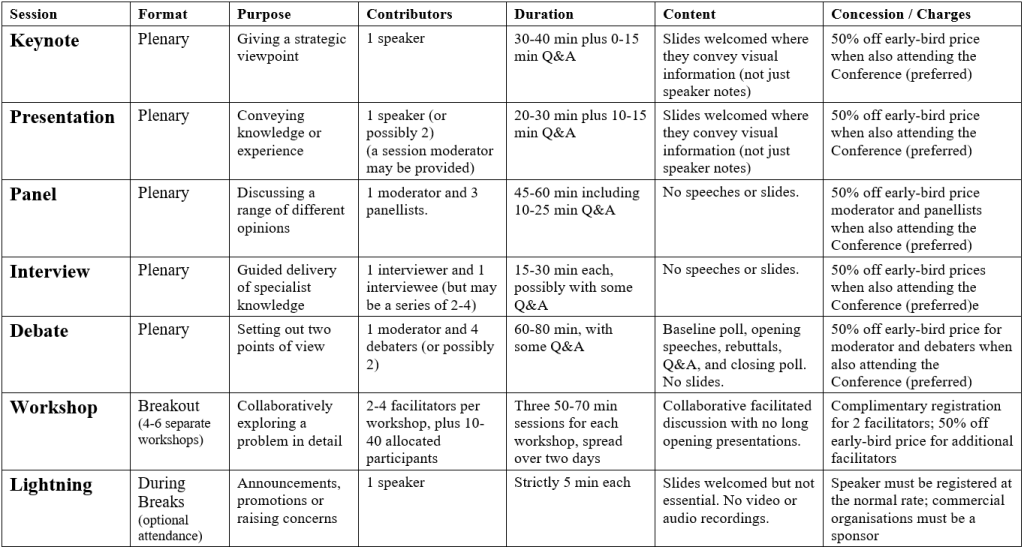
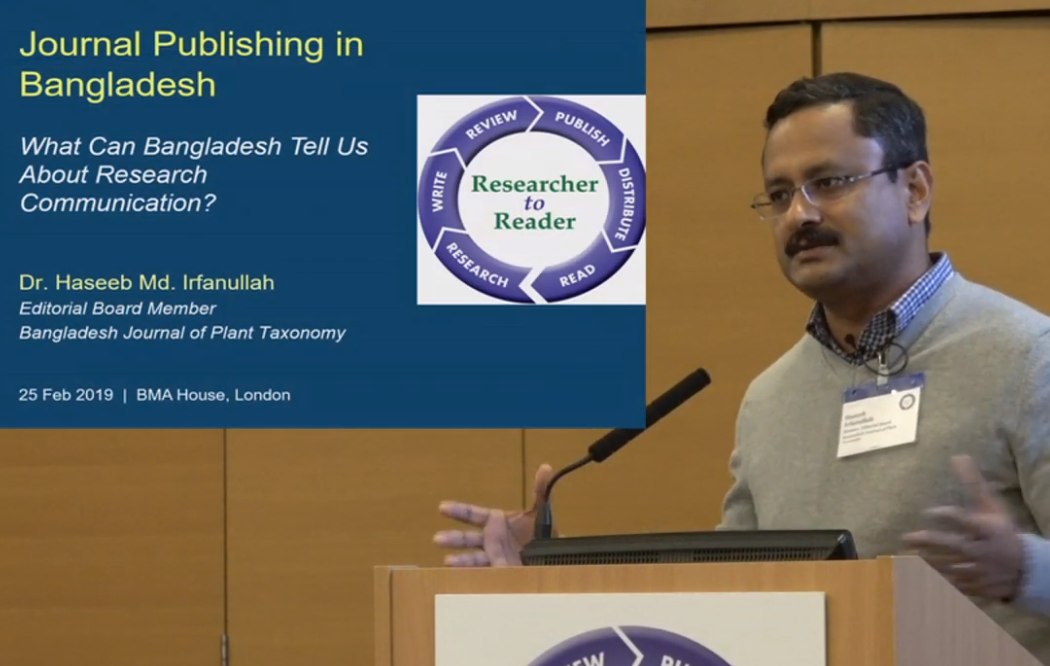 Presentations
Presentations
work well where a single expert speaker is conveying information about a well-defined subject. These are typically structured as an illustrated talk lasting 25-30 minutes, followed by a moderated Q&A lasting 15-20 minutes.
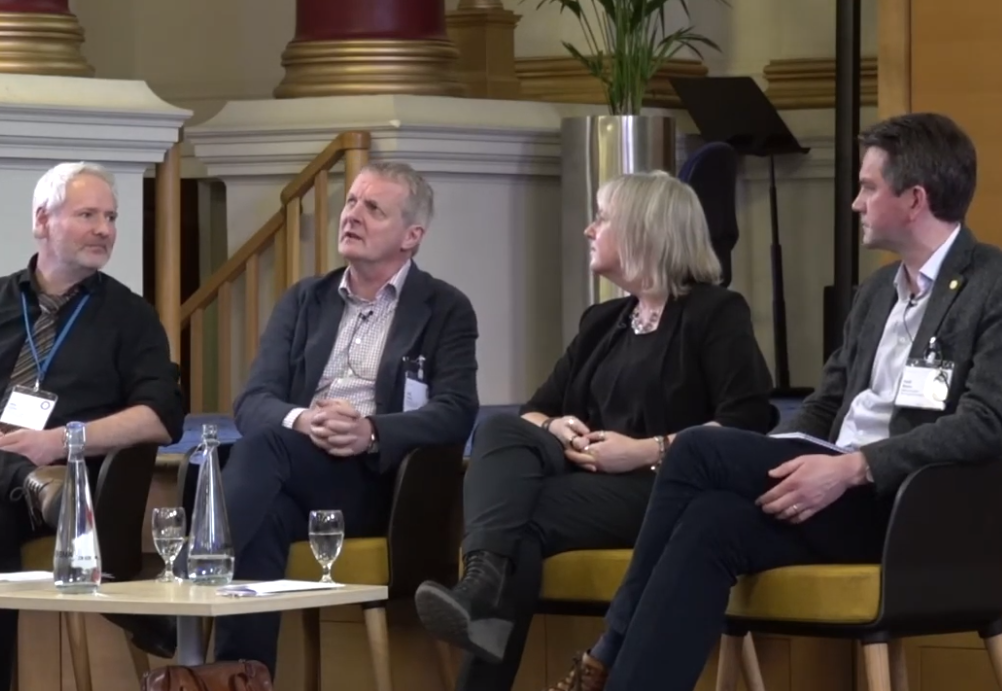 Panels
Panels
are discussions amongst a diverse group of experts, where there is a range of opinions to be expressed and a lively and well-facilitated discussion amongst the panellists and with the participants. These are typically structured as a well-moderated expert conversation, with no formal presentations, lasting 45-60 minutes, including a large amount of interaction with the conference participants throughout.
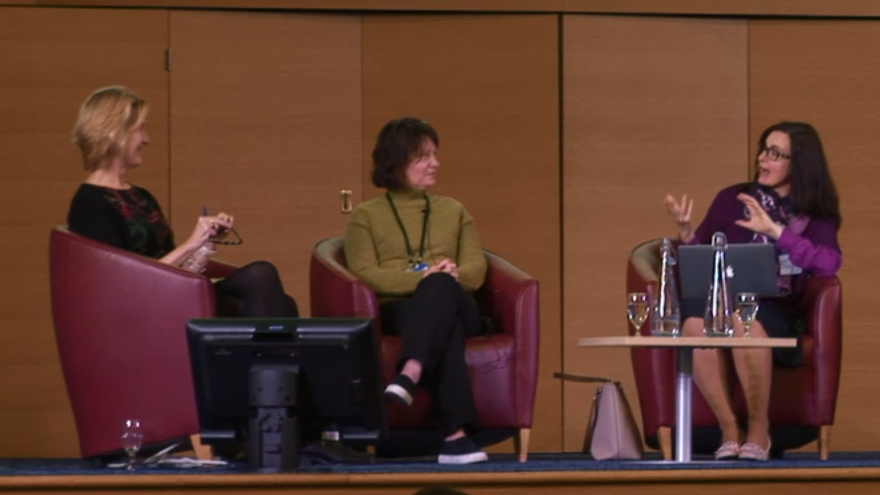 Interviews
Interviews
can be a conversation between a moderator and an expert (or a series of related conversations). These work well when focussed individual questions are more effective than a panel conversation, or when a potential speaker is more comfortable answering questions than standing at the podium. These are typically structured as a single interview lasting about 45 minutes, with the moderator ensuring that questions from the participants are included at multiple points. It can also be very effective to have a series of separate shorter interviews on the same topic with multiple experts; this works like a panel but without the multi-way conversation.
Debates
are highly structured discussions where two sides (with one or two speakers each) argue for or against a binary and unambiguous proposition. The moderator is a strict enforcer of the rules including timekeeping, and takes a participant vote on the proposition before and after the debate to determine the winner of the argument. A debate typically last 60-90 minutes and sometimes divided into two separate sessions.
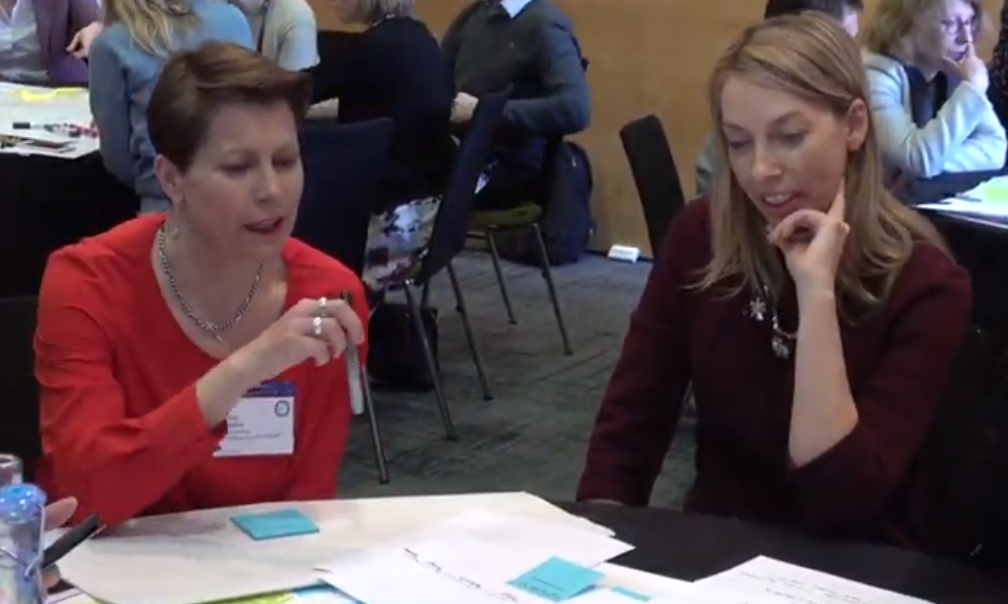 Workshops
Workshops
at R2R are facilitated collaborative conversations, with very high levels of delegate participation and engagement. Each workshop discusses a clearly-defined question or problem, and attempts to reach a resolution. Workshops are particularly well-suited to complex problems with diverse issues to be explored and a range of solutions that can be developed. Delegates select just one preferred workshop out of choice of parallel topics, and each has a total duration of about 2-3 hours, split over multiple sessions that reconvene during the Conference timetable. Our workshops can be demanding to prepare and deliver, but are an exceptionally popular part of the programme, and are always reported to be highly worthwhile for facilitators and delegates alike. Each workshop usually has around 15-35 participants, and during the workshop sessions there is typically a mixture of whole-group conversations and smaller breakouts. In a hybrid environment, for practical reasons it is possible that a workshop will have separate online and physical breakouts, within the discussion, but the overall 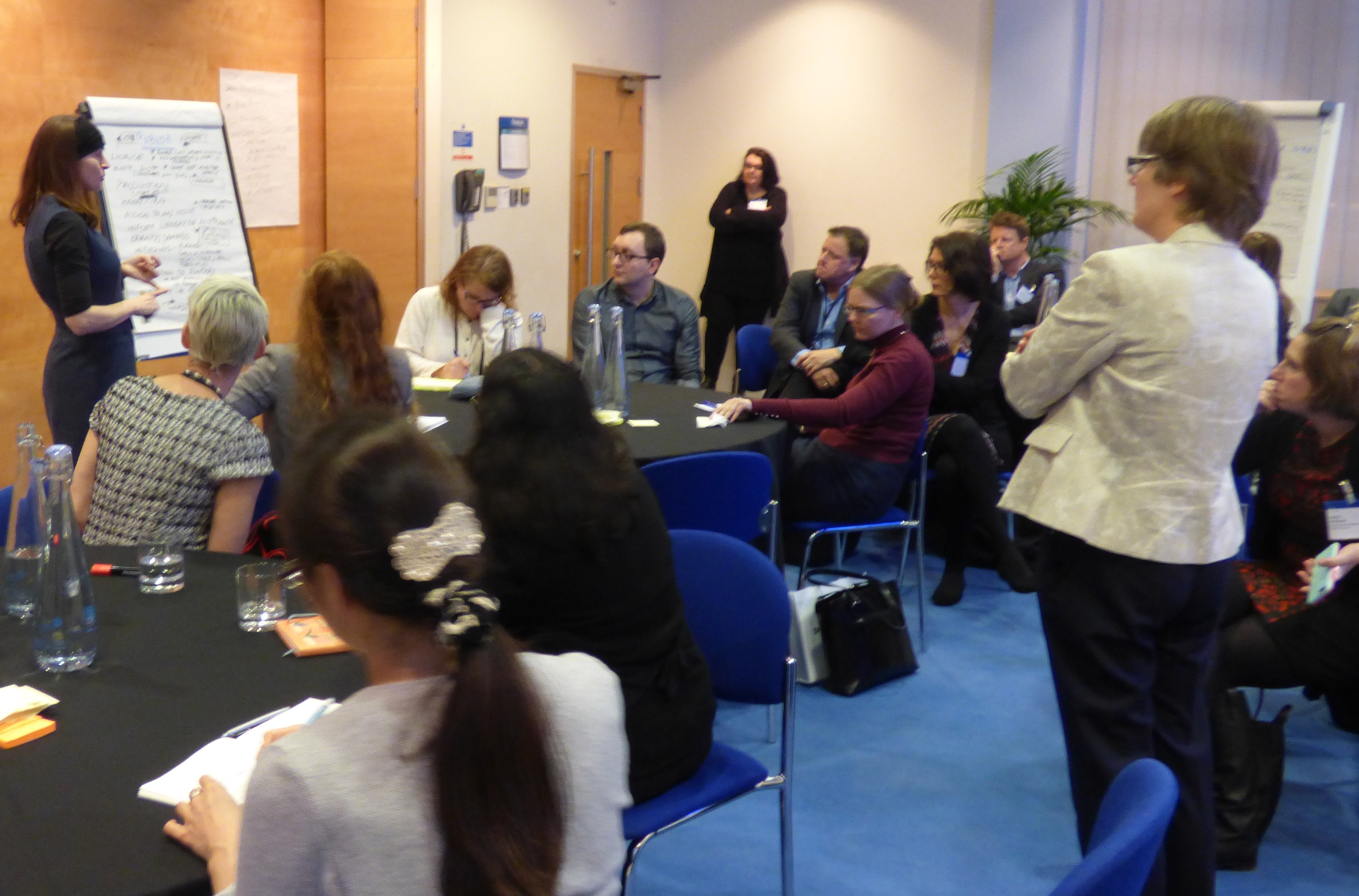 workshop must be hybrid. Physical-only and online-only workshops have functioned well with just two facilitators, but for a fully-hybrid workshop we recommend a team of 3 or 4 facilitators. A workshop topic may build on the content of a Conference presentation, or cover other issues of relevance to the creation, supply and consumption of academic research. A workshop could be used to gather scoping or qualitative responses as part of an academic research project, be part of a standards consultation, or even be used for product prototyping if appropriately structured and described. Workshops tend to function best when they attempt to discuss and reach resolution on a clearly-defined question or problem. The workshops are not seminars, given by speakers, but are highly interactive conversations held amongst the participants, and facilitated by the workshop organisers. Some of our most successful workshops have been created and run by a two-person team comprising a subject expert and a facilitator; the subject expert will frame the question to be worked on, and provide expert knowledge during the workshop, while the facilitator will summarise the topic, lead discussions, encourage broad participation and ensure that the outcomes are documented. The Conference has a particular focus on ensuring high-quality workshop facilitation, and is very open to matching topic experts with skilled facilitators.
workshop must be hybrid. Physical-only and online-only workshops have functioned well with just two facilitators, but for a fully-hybrid workshop we recommend a team of 3 or 4 facilitators. A workshop topic may build on the content of a Conference presentation, or cover other issues of relevance to the creation, supply and consumption of academic research. A workshop could be used to gather scoping or qualitative responses as part of an academic research project, be part of a standards consultation, or even be used for product prototyping if appropriately structured and described. Workshops tend to function best when they attempt to discuss and reach resolution on a clearly-defined question or problem. The workshops are not seminars, given by speakers, but are highly interactive conversations held amongst the participants, and facilitated by the workshop organisers. Some of our most successful workshops have been created and run by a two-person team comprising a subject expert and a facilitator; the subject expert will frame the question to be worked on, and provide expert knowledge during the workshop, while the facilitator will summarise the topic, lead discussions, encourage broad participation and ensure that the outcomes are documented. The Conference has a particular focus on ensuring high-quality workshop facilitation, and is very open to matching topic experts with skilled facilitators.
Lightning Talks
are very short speeches that may be given by any registered delegate, and are an excellent way to briefly introduce a topic or to convey simple information. The Lightning Talks are scheduled during the breaks in the plenary programme, and each will be strictly limited to a 5-minute slot. The sessions may be given in parallel or repeated, depending on the time available in the Programme. These sessions can potentially include presentations by people promoting products, services or other initiatives, as participants can choose whether or not to attend, but the promotional nature of the session must be made clear in the published abstract. If a speaker is from a commercial organisation, the company must be a sponsor in order to be able to offer a promotional Lightning Talk.
-
Anyone can be a contributor to the programme
Proposals can be made, and sessions can be given, by any member of the research, publishing and library community, whatever their institutional or organisational affiliation. Contributors who are employed by commercial organisations are encouraged to participate, but corporate proposals prepared by marketing or PR departments on behalf of their corporate colleagues cannot be accepted.
Proposers are encouraged to provide evidence of their experience or suitability, based on past successes and evidenced where possible by video-recordings, although this is not essential.
-
Sales messages are not permitted except in the Lightning Talks
Generally, proposed sessions must be of interest to the community as a whole, and faithful to the Conference ethos, not merely promotional messages. Selling or demonstrating products or services as part of the programme, whether from a commercial supplier or a not-for-profit organisation, is absolutely unacceptable, except in a Lightning Talk, where the promotional nature of the session must be made clear in the published abstract.
-
Contributors are participants in the whole Conference
We strongly encourage each contributor to plan to participate in the whole Conference, not just their own session; as a participant in the Researcher to Reader Conference, not a grandee delivering their message to an audience.
The R2R Conference ethos is of a community participating together in a two-day collaborative conversation, not a roster of separate speakers presenting to a passive audience in a series of independent sessions. The majority of contributors are expected, therefore, to participate in all (or most) of the meeting as members of the R2R community. Many plenary contributors find joining our collaborative workshops extremely energising. We recognise that this is not always possible or appropriate, but we do urge all contributors to join in fully.
-
Contributors to the programme are offered discounted registration
All contributors to the programme must be registered Conference participants. Plenary speakers, panellists and moderators are offered a 50% discount on our early-bird tariffs, and workshop facilitators (up to two per workshop) have free registration for the whole Conference. Lightning Talk speakers ust be registered at the appropriate normal rate. Various other discounts and concessions are also available. Any other costs for attendance are the responsibility of the participant, although we are occasionally able to offer some support toward travel or accommodation, often with support from a sponsor.
-
A contributor can participate physically at the venue or online
Proposers who are invited to contribute to the Conference will be provided with support to ensure that they are able to deliver their session in the physical or online environment as appropriate. Our hybrid event plans mean that it should be possible for a contributor to participate either physically from the venue or online from a location of their choosing. We do, however, encourage contributors to attend at the physical venue if possible, and to ensure that multi-contributor sessions (such as panels) have at least some contributors at the physical venue, as we feel this offers a better experience for both physical and online participants.
-
Proposals are evaluated by the Advisory Board
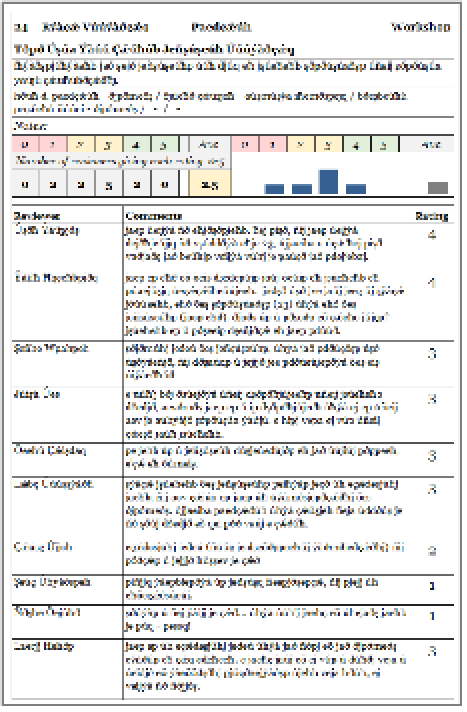 Normally, evaluation of the proposals takes place throughout September, and a response is given by early October, but the evaluation period can sometimes extend well into October, or beyond.
Normally, evaluation of the proposals takes place throughout September, and a response is given by early October, but the evaluation period can sometimes extend well into October, or beyond.
The Advisory Board has complete discretion regarding which proposals are accepted for the Conference programme and the Board’s decision is final. The Conference accepts no responsibility for any costs incurred in the preparation of proposals, or for any consequences of acceptance or rejection.
Proposers may be invited to modify their proposals to meet the needs of the Conference programme. Proposers may withdraw their proposals up to the point of acceptance, or when invited to make modifications.
Proposers agree that, if accepted, their proposal may form part of the Conference programme and that any presentation and biographical content may be included in Conference materials, including potential distribution of slides, scripts, transcripts or abstracts, and any video, audio or photographic recording.
(This page updated: 24 April 2023, 30 May 2023, 2 July 2023, 25 August 2023, 10 September 2023)


You must be logged in to post a comment.